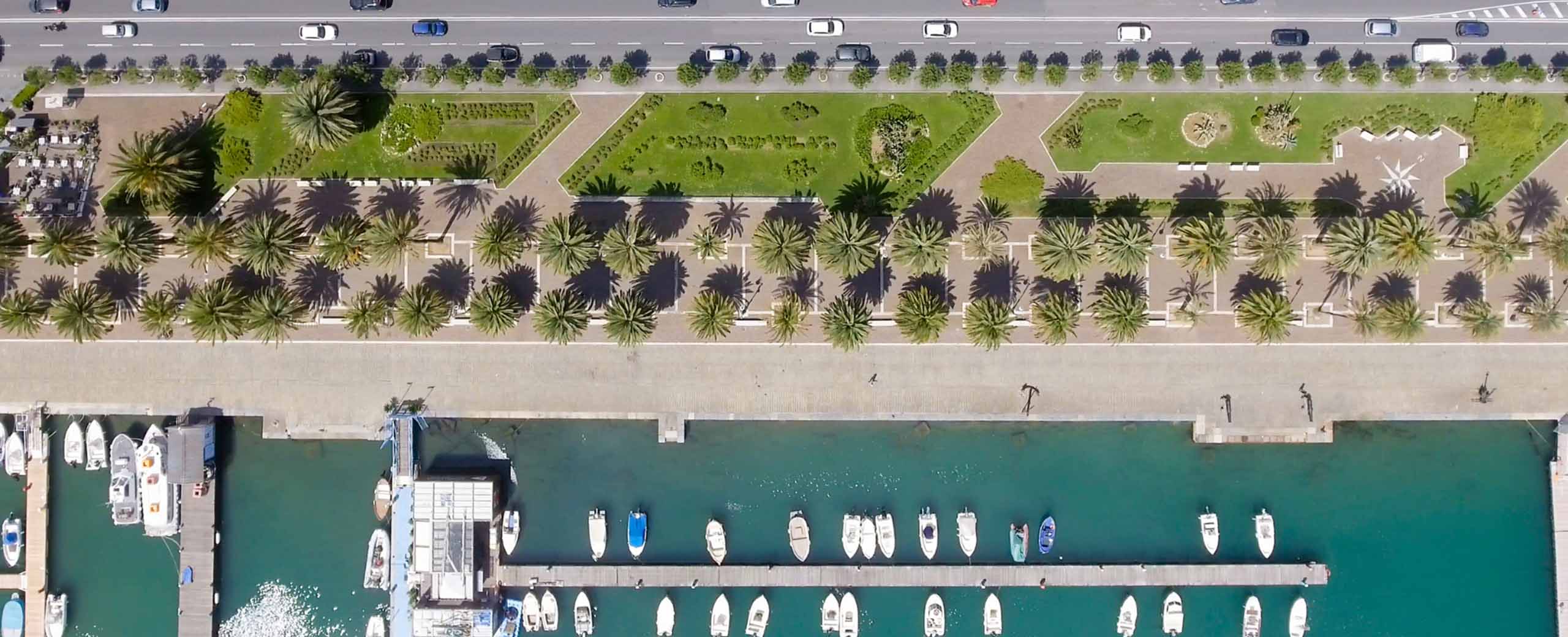4 years ago, Barclays and Unreasonable Group partnered to launch Unreasonable Impact to scale up entrepreneurial solutions that provide opportunities for thousands of jobs in sustainability, while solving some of society’s most urgent social and environmental challenges. ECOncrete® was selected from hundreds of companies across the globe to join 13 other impact leaders in the UK & Europe Unreasonable Impact Programme.
Unreasonable companies are tackling some of the world’s most pressing challenges, from food waste to construction strategies for the future. Some of this year’s visionaries are developing companies and services that aim to revolutionize the ways we build urban spaces.
Our cities are home to over half of the global population. Dense urban spaces are often claimed to be a greener option than rural living, but they consume 75% of the earth’s natural resources and are responsible for over 70% of CO₂ emissions. From planning the interfaces of city edges with natural spaces to engineering the materials used in new construction, Unreasonable Impact is pushing solutions forward.
An Urban Transformation
A bird’s eye view of land, water, energy, and transportation impacts is critical to more sustainable cities. Many are giving up spread-out urban plans (known as urban sprawl) in favor of denser development with clean edges. “Dense urbanism” creates more walkable cities and leaves more land undisturbed.

Nashville Tennessee is the most sprawling city in the U.S.
Impacts of urban life extend into nature. Image from Google Earth.

San Francisco California is the second densest city in the U.S. It is constrained by water on 3 sides. Image from Google Earth.
Unreasonable companies are tackling environmental damage caused by our built environments, as well as harmful construction materials themselves. If it’s water consumption or construction materials, using up resources to develop our cities is creating problems for human and environmental health. Zooming in to a higher resolution, we can see that the building strategies and materials we’re using play an invaluable role in designing sustainable, or unsustainable, cities and coasts.
An Unreasonable Set of Solutions
2020 Unreasonable company Project Etopia is building modular, efficient homes that produce more energy than they use and reduce CO₂ emissions associated with construction and operation. Revolutionizing and adapting green full-scale housing means that each house uses less energy, and has a smaller carbon footprint.

Etopia modular commuter village. Image taken from pbc today.
Focusing on construction materials, Biohm is redesigning the materials from which we can build our homes and skyscrapers, like insulation and walls from mushroom mycelium. The benefits aren’t just structural and performance-based, they’re also positively impacting the environment by removing plastic, agricultural, and food waste from the landfill pipeline and using it to grow their building materials.

Mushroom mycelium insulation from BIOHM.
A Concrete Problem
When envisioning the cities of the future, we like to think of biking greenways and electric vehicles, rooftop solar, and vertical farms. These measures are mitigations for climate change – reducing our cities’ contributions to greenhouse gas generation. To create truly resilient cities, we must also adapt to a changing climate, and nowhere is this more urgent than where our cities interact with oceans and waterways.
Rising seas and stronger storms are causing massive damages to coastal cities every year. About 1 in 2 people on earth live in coastal regions, and as we build ports, homes, and city centers on our waterfronts, we armor them against flooding and erosion. About 70% of this infrastructure is made of concrete, and it’s replacing shallow-water ecosystems critical to healthy ocean food webs, flood protection, and improving the state of our climate.

Conventional marine mattresses (left) can be used to stabilize shorelines against erosion. ECOncrete’s articulated version (right) performs structurally, while also providing a growth point for marine life.
ECOncrete® is Unreasonable Impact’s pick to address an intractable problem. Urban coasts will continue to develop, climate change impacts like more severe storms and rising seas will make cities more vulnerable, and a loss of coastal ecosystems and biodiversity is pushing our oceans to the brink. By creating coastal defense infrastructure that makes coastal ecosystems healthier, ECOncrete® bridges the needs of our future cities to both adapt and mitigate climate change.
A Vision for Unreasonable Impact
ECOncrete’s participation in the Unreasonable Impact Program is helping push one piece of the sustainable city puzzle further into place. As ECOncrete® shifts into gear for a big scale-up, the immersive program is helping transition our positioning to better reach more ports, harbors, urban coasts, offshore wind farms, and everywhere we see concrete in and around water.
Unreasonable Impact is doing whatever it takes to help entrepreneurs like us gain the funding, network, and scalability to solve the Big Fat Problems our society faces. By creating unlikely partnerships with some of the world’s largest institutions and most admired brands, Unreasonable Impact accelerates solutions across industries, asset classes, and geographies.
In a world that’s anticipating the need to fill over 300 million jobs lost to a changing employment landscape, we have the power to create a thriving green economy across industries. There’s potential to provide over 354 million lives with careers that are doing good for people and planet. We’re thrilled to be a part of it.
Read more about the program and mentors here.
This eleventh Unreasonable Impact program takes place from October 12, 2020 – March 3, 2021, in a virtual environment and format.
